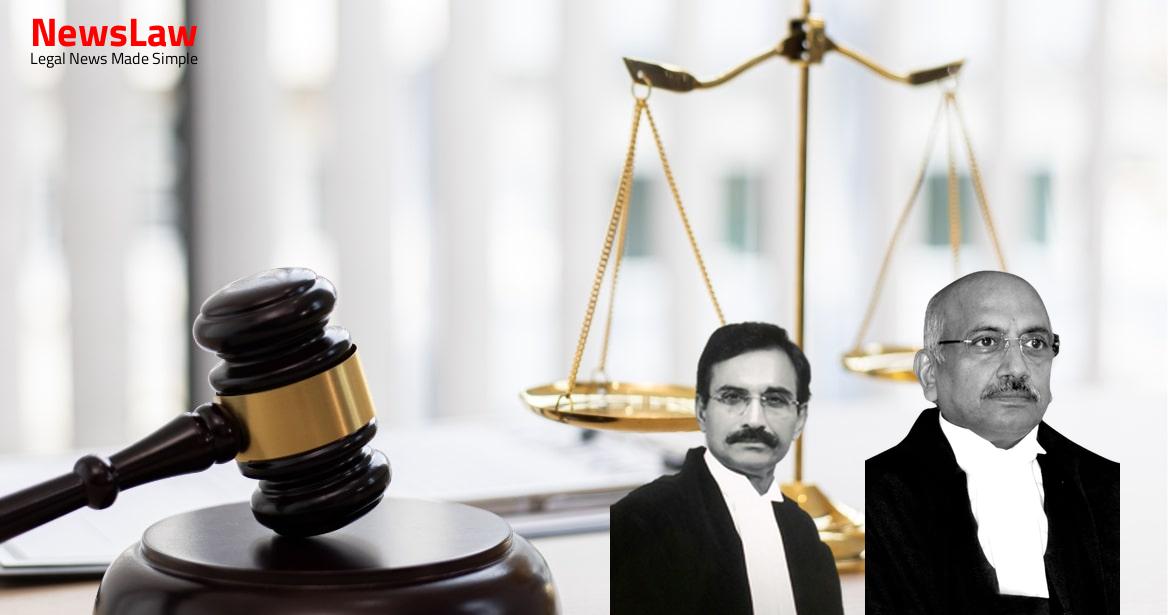In a significant legal development, the Supreme Court of India has delivered a groundbreaking judgment on judicial review involving slum rehabilitation. The case brought before the Court raised key issues regarding accountability, project delays, and the rights of slum dwellers. This ruling is set to have far-reaching implications for future slum redevelopment projects, emphasizing the importance of timely execution and adherence to statutory duties. Stay informed on the latest legal updates with regard to the case involving the Maharashtra Slum Rehabilitation Scheme.
Facts
- Appellant was appointed by Harihar Krupa Co-Operative Housing Society Limited to develop a project under a development agreement dated 20.08.2003.
- Appellant’s proposal for development was made on 11.12.2003, but the development process was prolonged for over two decades.
- Development agreement in favor of the appellant was terminated by the Apex Grievance Redressal Committee on 04.08.2021 due to the prolonged delay.
- Municipal Corporation of Greater Mumbai assigned the redevelopment to a rival society, Omkareshwar Co-Operative Housing Society, and a developer, Siddhivinayak Developers, on 06.05.2004.
- SRA accepted the proposal given by Omkareshwar and Siddhivinayak for the development of the Property on 07.09.2004.
- After a prolonged litigation between the appellant and Omkareshwar, the CEO ruled in favor of Omkareshwar and Siddhivinayak.
- The subject land in Borivali, Mumbai was declared as a ‘slum area’ under the Maharashtra Slum Areas (Improvement, Clearance and Redevelopment) Act, 1971.
- The delay in obtaining necessary permissions, approvals, and environmental clearances from 2011 to 2014 was found to be attributable to the appellant.
- The High Court observed that the appellant did not commence construction even after getting necessary approvals, but waited for Environmental Clearance.
- Regarding the period from 2003 to 2011, the High Court upheld the findings of the AGRC regarding delay.
- The High Court emphasized that some parts of the project, like the rehabilitation building, did not require Environmental Clearance for commencing construction.
- The Municipal Corporation sanctioned a road passing through the property and published the draft development plan on 25.02.2015, which was used to justify a delay.
- The delay due to issues with non-cooperative slum dwellers and obtaining Environmental Clearance between 2011-2014 was argued to be unavoidable by the appellant.
- The High Court noted that the delay caused by the draft development plan justified a two-year delay and no more.
- Litigation and disputes with various parties consumed significant time, leading to delays in the project.
- The High Court found that the appellant went into inaction after filing eviction applications for non-cooperating slum dwellers in 2014-2015.
- Financial agreements with third parties, such as mortgaging rights and providing financial assistance, were highlighted as potential issues in the project.
- Several disputes and litigations between parties further contributed to delays in the completion of the project.
- The appellant’s interest in solely commercial aspects rather than the rehabilitation of slum dwellers was criticized by the High Court.
- The maintainability of proceedings before AGRC was questioned based on complaints being withdrawn by managing committee members of one of the parties on multiple occasions.
Also Read: Justice Served: High Court Judgement in Favor of Mr. K. Rajashekhara Reddy and Writ Petitioner
Issue
- The Bombay High Court raised two main issues regarding the termination of a developer for not fulfilling the basic requirement to commence construction of a slum rehabilitation building after an 18-year delay.
- The first issue questioned whether such non-fulfillment was fatal to the statutory intent behind the Slum Rehabilitation Scheme.
- The second issue focused on the right to shelter of slum dwellers guaranteed under Article 21 of the Constitution, and whether it can be nullified by prolonged delays by the developer in starting the construction, especially when the project is a commercial venture for profit.
- Additionally, the High Court emphasized the limited scope of judicial review under Article 226 of the Constitution in challenging the decision of the statutory authority, AGRC.
Also Read: Clarification on Customs Duty Payment in Confiscation Proceedings
Arguments
- The petitioner sought financial assistance from various entities before securing assistance from M/s Sanghvi Associates.
- The sale building construction could not begin until substantial progress was made in the rehabilitation building.
- The Chief Executive Officer’s request for rent arrears did not guarantee the petitioner’s financial capability for project completion.
- The SRA has the power and duty to redevelop a project if it is not progressing as specified.
- The High Court noted the petitioner’s financial struggles as a factor in assessing their ability to execute the project.
- The SRA’s duty includes ensuring project completion within the specified time.
- The withdrawal of termination was done without proper authorization, impacting the developer change process.
- The appellant’s financial capacity and expertise were contested throughout the proceedings.
- The time period during litigation was argued to be excluded from project development considerations.
- The proposed development plan road and its impact on construction timelines were debated.
- The SRA was held accountable for ensuring project performance.
- Mr. Sibal argued that ARG respondent does not have the locus to take a stand contrary to the appellant due to involvement since the joint development agreement in 2019.
- The delay in project implementation from 2003-2011 was attributed to the appellant’s lack of capacity and capability to complete the project.
- Mr. Rai, a slum dweller and member of ARG respondent, had the necessary locus to file complaints against the appellant.
- Mr. Ahmadi stated that the construction delay is solely the appellant’s fault, despite having the financial capacity certified by SRA in 2019.
- Mr. Sundaram contended that the appellant lacked financial capacity and technical expertise to finish the project on time.
- Multiple complaints were filed against the appellant by other slum dwellers for non-payment of rent, indicating a larger issue.
- Section 13(2) of the Act empowers SRA to take action against developers when projects are not being implemented.
Also Read: Land Ownership Dispute Between Maharani and Cantonment Board
Analysis
- The judiciary plays a facilitative role in access to justice and effective functioning of constitutional bodies.
- Judicial review involves reviewing and assessing the implementation of a statute as a part of the Rule of Law.
- A critical mass of adjudicatory determinations on the working of a statute is of immense value for auditing legislation.
- The judiciary nudges for systemic reforms through judicial review, prompting societal debate on policy decisions.
- The judicial branch compels audit of legislation to assess impact and promote legal reforms.
- There is a statutory duty for authorities to ensure timely completion of projects under the Slum Rehabilitation Scheme.
- Judicial review can compel action through a writ of mandamus if statutory duties are not performed.
- A developer must adapt to change and act promptly to avoid delays in project implementation.
- The statutory scheme’s effectiveness and access to statutory remedies are crucial for successful implementation of schemes.
- Delays in project execution of slum rehabilitation schemes defeat the scheme’s purpose and ideals.
- Section 13 of the Act empowers the Competent Authority to redevelop clearance areas for public interest.
- The Authority can determine to redevelop the land at its own cost if the owner fails to commence redevelopment after clearance.
- If the owner contravenes approved plans or conditions for redevelopment, the Authority can also choose to redevelop the land at its own cost.
- The owner must be given a reasonable opportunity to show cause before such a redevelopment order is passed.
- Section 13(2) allows the competent authority to re-determine the agreement if redevelopment is not done within specified timeframes.
- Accountability has three essential constituent dimensions: responsibility, answerability, and enforceability.
- Responsibility involves identifying duties and performance obligations of individuals in authority.
- Answerability requires reasoned decision-making for public awareness of decisions.
- Enforceability necessitates corrective action against lack of responsibility and accountability.
- Issues in the statutory framework hinder the purpose of the legislation.
- Slum rehabilitation schemes face challenges from disputes and delays.
- Judicial review is crucial for ensuring accountability in administrative actions.
- Accountability is a cornerstone of human rights and development goals.
- Accountability is essential for addressing grievances and improving non-functional procedures.
- Slum dwellers should not be left at the mercy of developers and builders for rehabilitation.
- Proper maintenance and hygiene are crucial for slum dwellers in transit accommodations.
- Effective implementation of accountability principles is necessary for eradicating slums and ensuring proper rehabilitation.
- Judicial review requires a clear identification of duty with accountability.
- The Slums Act empowers statutory authorities to regulate and control situations in the best interest of slum dwellers.
- The purpose of the Slum Rehabilitation Authority is impartial implementation, supervision, and monitoring of projects.
Decision
- No statutory audit has been undertaken for the Maharashtra state-legislation Act discussed.
- Request made to the Chief Justice of the Bombay High Court to initiate suo motu proceedings to review the working of the statute.
- Dismissing the Civil Appeal with costs payable to Supreme Court Mediation and Conciliation Project Committee.
- High Court authorized to devise appropriate methods.
- Consideration for directing the government to constitute a committee for performance audit of the Act.
- No further orders needed in the Contempt Petition.
- Identification of delay periods between 2003-2011 and 2015-2017.
- Pending applications are disposed of.
Case Title: YASH DEVELOPERS Vs. HARIHAR KRUPA CO OPERATIVE HOUSING SOCIETY LTD. (2024 INSC 559)
Case Number: C.A. No.-008127-008127 – 2024



